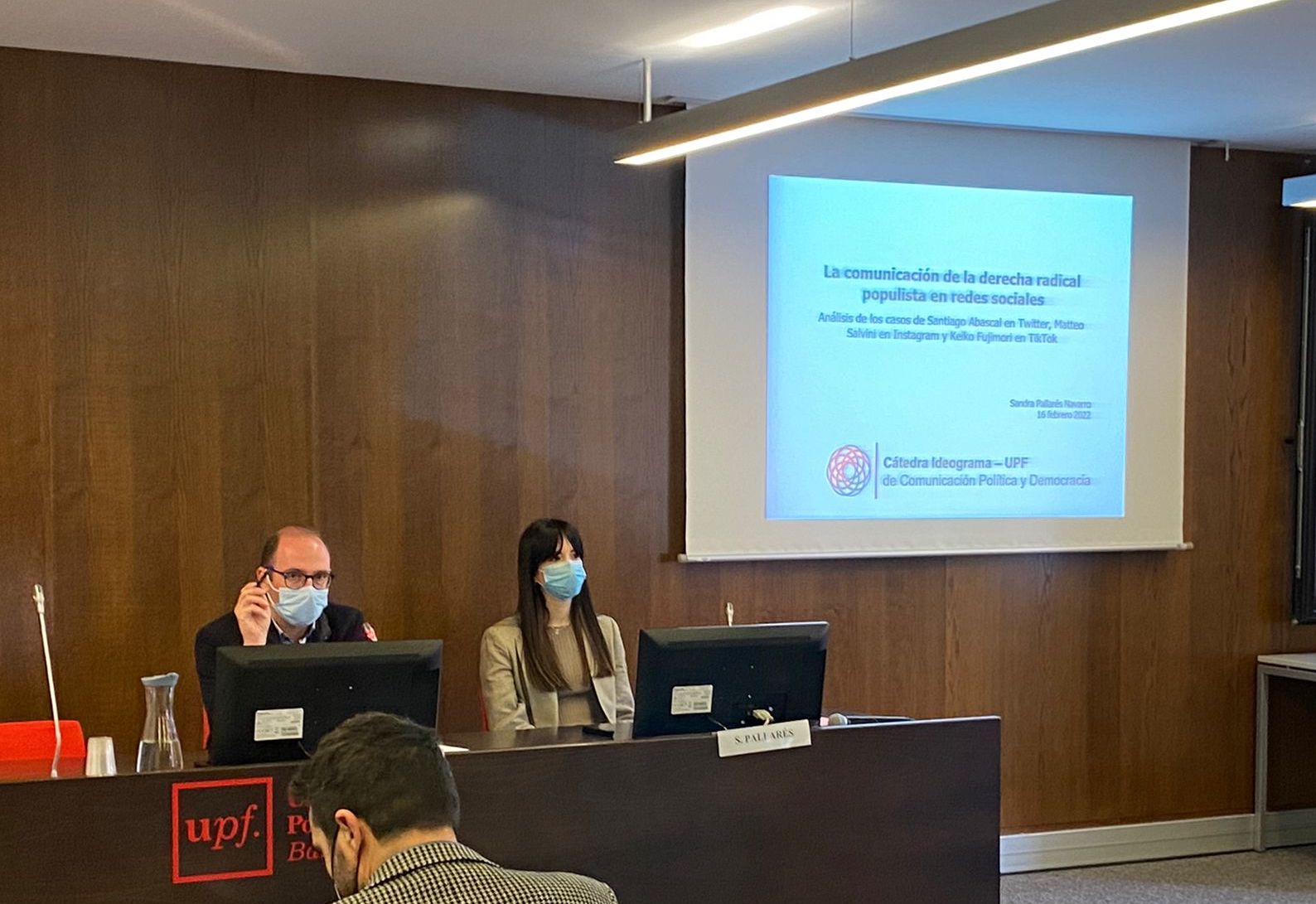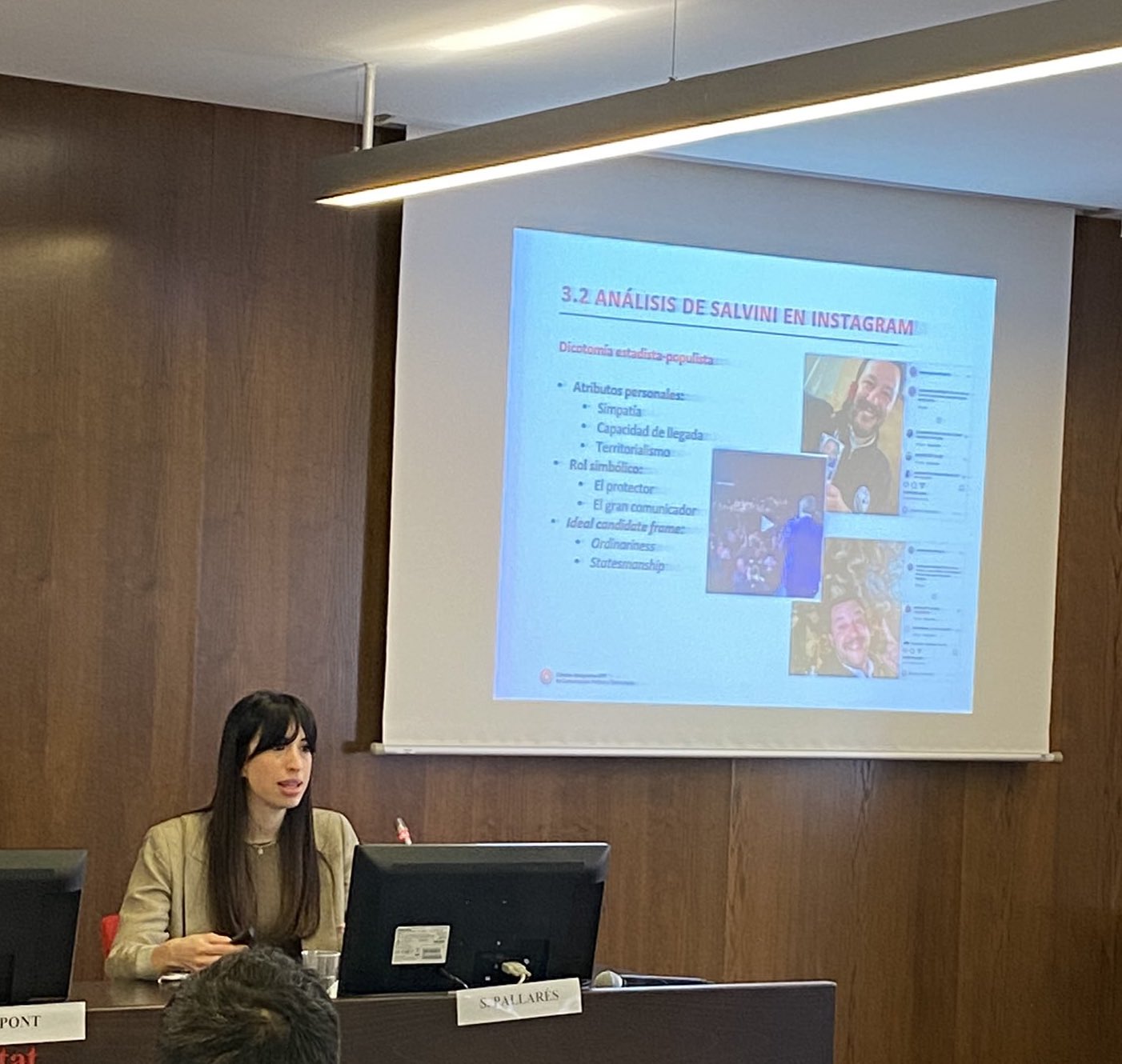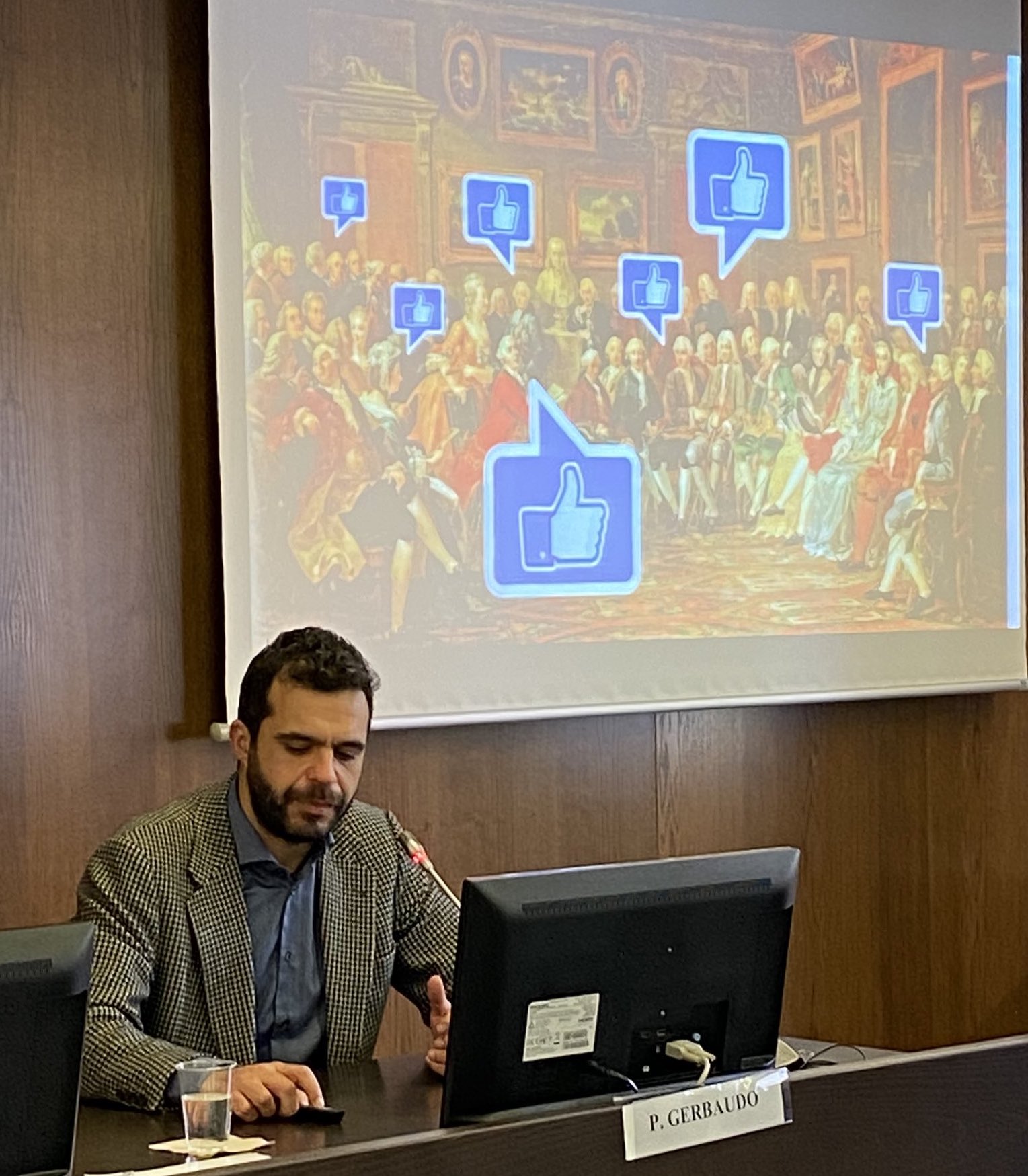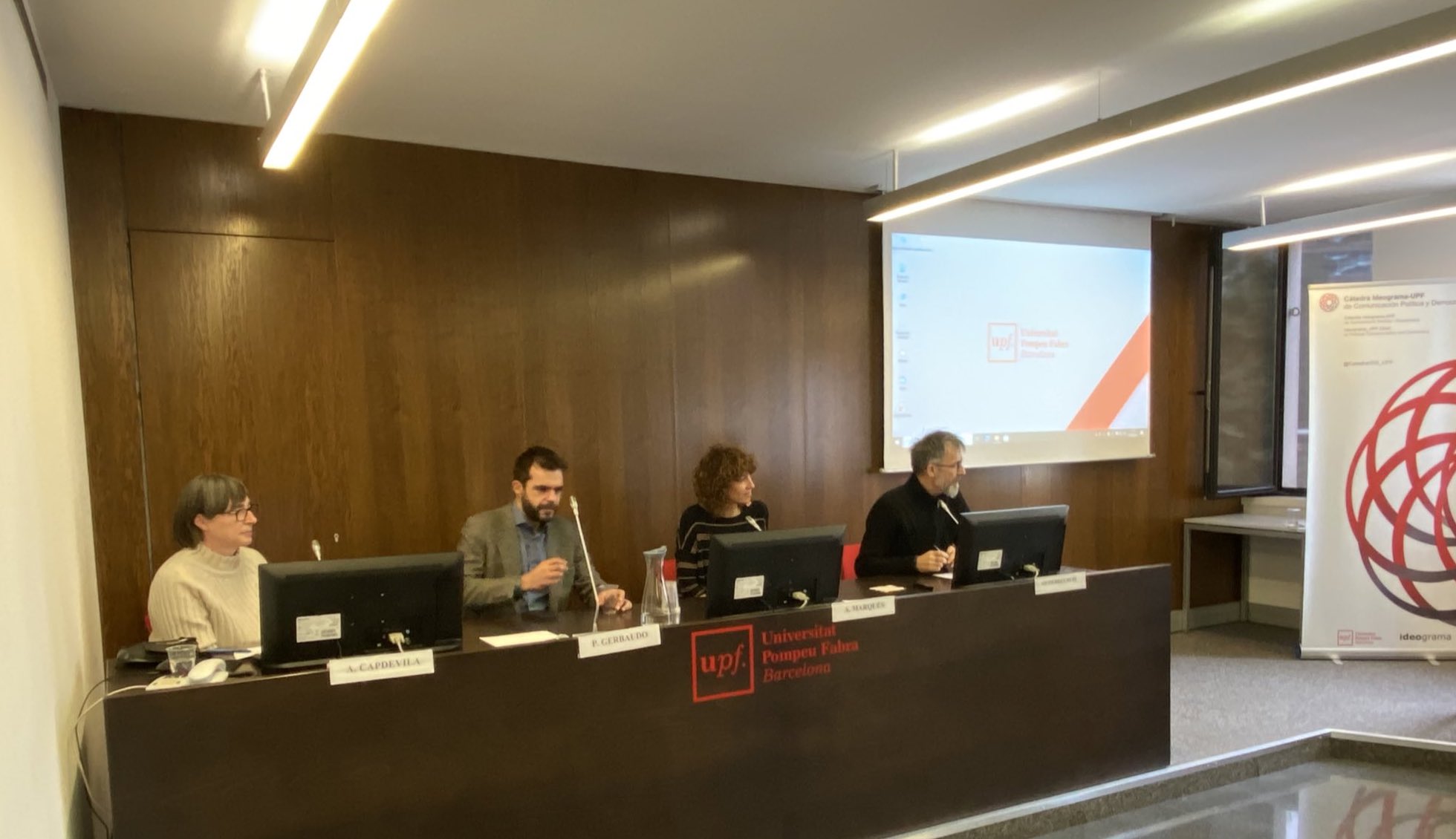International Seminar on populism, hate speech and the digital sphere
International Seminar on populism, hate speech and the digital sphere
The event, held on February 16, featured talks by the expert in populism and social networks, Paolo Gerbaudo, the winner of the Ideograma - UPF Chair Award, Sandra Pallarés, and a round table, moderated by Frederic Guerrero-Solé, with the participation of: Agnès Marquès, Antoni Gutiérrez-Rubí and Arantxa Capdevila.
The seminar began with a welcome from the director of the Ideograma - UPF Chair, Carles Pont-Sorribes, linking the content of the event with the results of the recent elections in Castilla y León. Next, he explained the development of the 1st edition of the Ideograma - UPF Chair Award, as well as the results of this award in the research of Sandra Pallarés. Carles Pont also announced the opening of the 2nd edition of the award and the agreement with the publisher EPI to publish all the winning works.

Carles Pont-Sorribes, director of the Chair and Sandra Pallarés, winner of the Ideograma - UPF Chair Award.
Sandra Pallarés, winner of the 1st edition of the Cátedra Ideograma – UPF Award, presented the results of her research: La comunicación de la derecha radical populista en redes sociales. Análisis de los casos de Santiago Abascal en Twitter, Matteo Salvini en Instagram y Keiko Fujimori en TikTok.
"The work seeks to analyze the use of social networks to avoid traditional media, in addition to proposing what influence they have on the political communication of populist leaders," she pointed out Pallarés.
Her study uses an analysis code made up of 41 variables that includes visual resources, text messages, among others, that allow analyzing the leadership of the candidates.
In it, a series of specific objectives are proposed regarding the candidates: analyze the main message of the publications, locate the elements of the populist discourse, observe the image of each candidate and investigate the communication strategy in each case.

Sandra Pallarés, winner of the Ideograma - UPF Chair Award.
The conclusions reached by Pallarés are that all the candidates have elements of populist rhetoric, but with considerable differences between them: Abascal opts for a critical tone oriented towards polarization, Salvini shows a more moderate discourse and Fujimori takes a much more kind that has as a consequence the simplification of the political debate. For more details, you can consult his presentation.
Next, Reinald Besalú, deputy director of the Chair, introduced the sociologist Paolo Gerbaudo, who gave his lecture: 'Populism, social networks, emotions'.
Gerbaudo reviewed the fundamental role that social networks have played in the pro-Brexit campaigns and in Trump's victory in 2016 and reflected on the effect that the digital sphere has had on the political debate: "The digital space of social networks It has become, on the one hand, a space for visibility and presence, and on the other, a space for dialogue, comment and exchange with the different participants.”

Paolo Gerbaudo, expert in populism and social networks.
Gerbaudo points to the digital sphere as an opportunity for those who until now had not had a voice to interact in the political and public debate: «It is the first time in history, in which ordinary people can express their rights in the public sphere. written political opinion. He highlights that, for this reason, populism and social networks are two elements that complement each other so well, around the idea of the people without a voice.
Finally, he affirmed that the greatest challenge in the investigation of the populist message in social networks is, on the one hand, theoretical, pointing out the need to create new concepts, and, on the other hand, methodological, developing shared and recognized tools that adapt to the new types of content. For more details, you can consult his presentation here.
After his conference, the King's College professor joined a round table with: Agnès Marquès, journalist; Antoni Gutiérrez-Rubí, communications consultant; and Arantxa Capdevila, professor of Communication at the URV, moderated by professor Frederic Guerrero-Solé.

Round table: Arantxa Capdevila, Paolo Gerbaudo, Agnès Marquès and Antoni Gutiérrez-Rubí.
In it, differentiated perspectives were exposed on how to confront populism. Antoni Gutiérrez-Rubí highlighted time as a primordial factor: «Vindicate time, and vindicate those values and virtues in which time is essential.» Agnès Marquès pointed out the failure of the data as a measure to combat populism and disinformation, and, finally, Arantxa Capdevila analyzed the use of metaphor as a discursive resource of the extreme right. Both Frederic Guerrero-Solé and Paolo Gerbaudo highlighted the growing importance of the image in the political communication of populist movements.
Full video of the Seminar: https://bit.ly/3v0So6y
Reference material:
- Presentation of Sandra Pallares: La comunicación de la derecha radical populista en redes sociales. Análisis de los casos de Santiago Abascal en Twitter, Matteo Salvini en Instagram y Keiko Fujimori en TikTok
- Presentation of Paolo Gerbaudo: Populismo, redes sociales, emociones